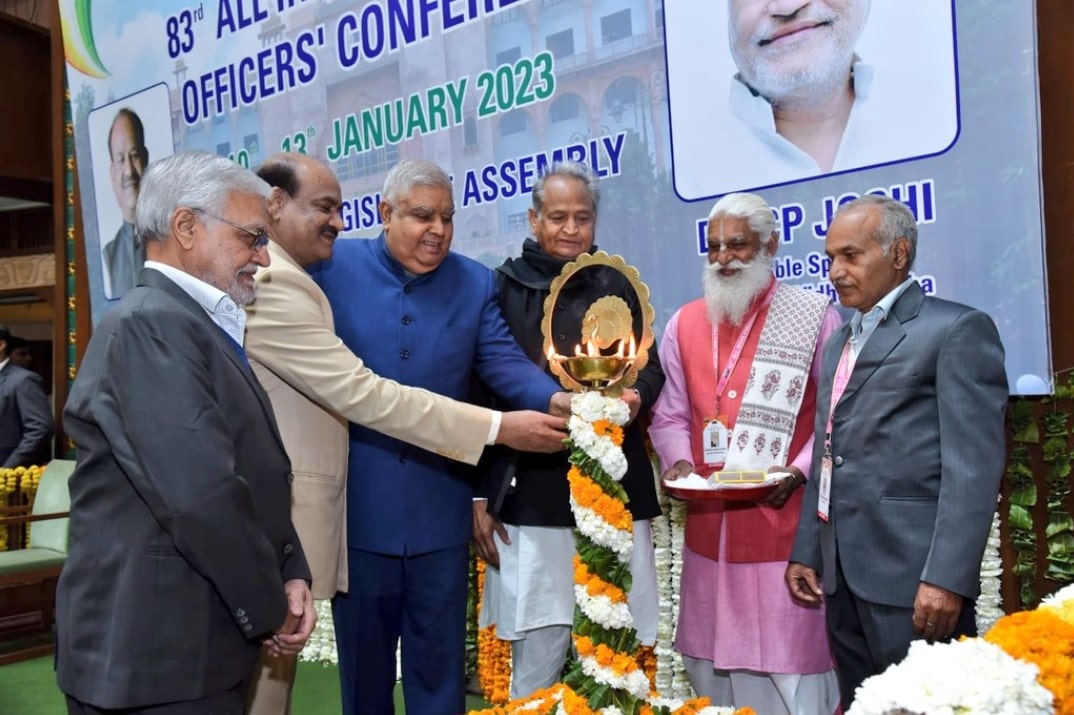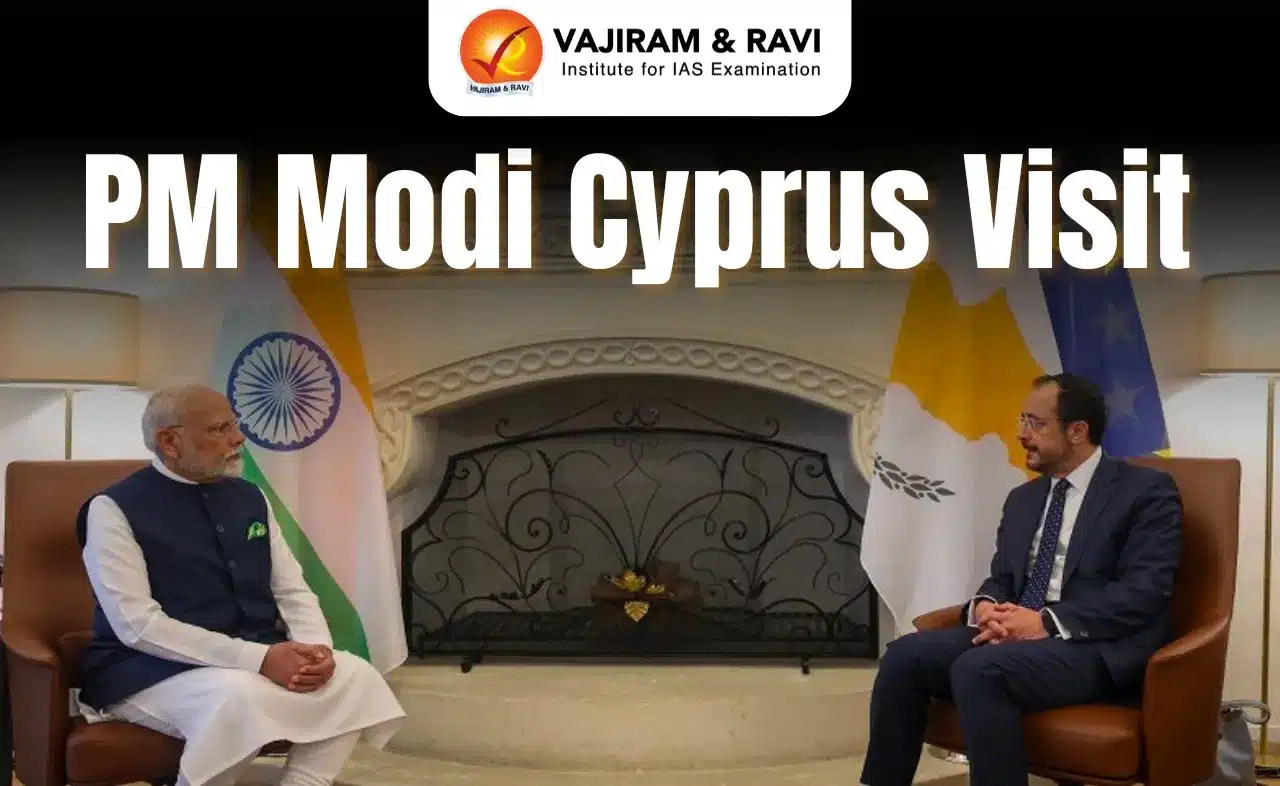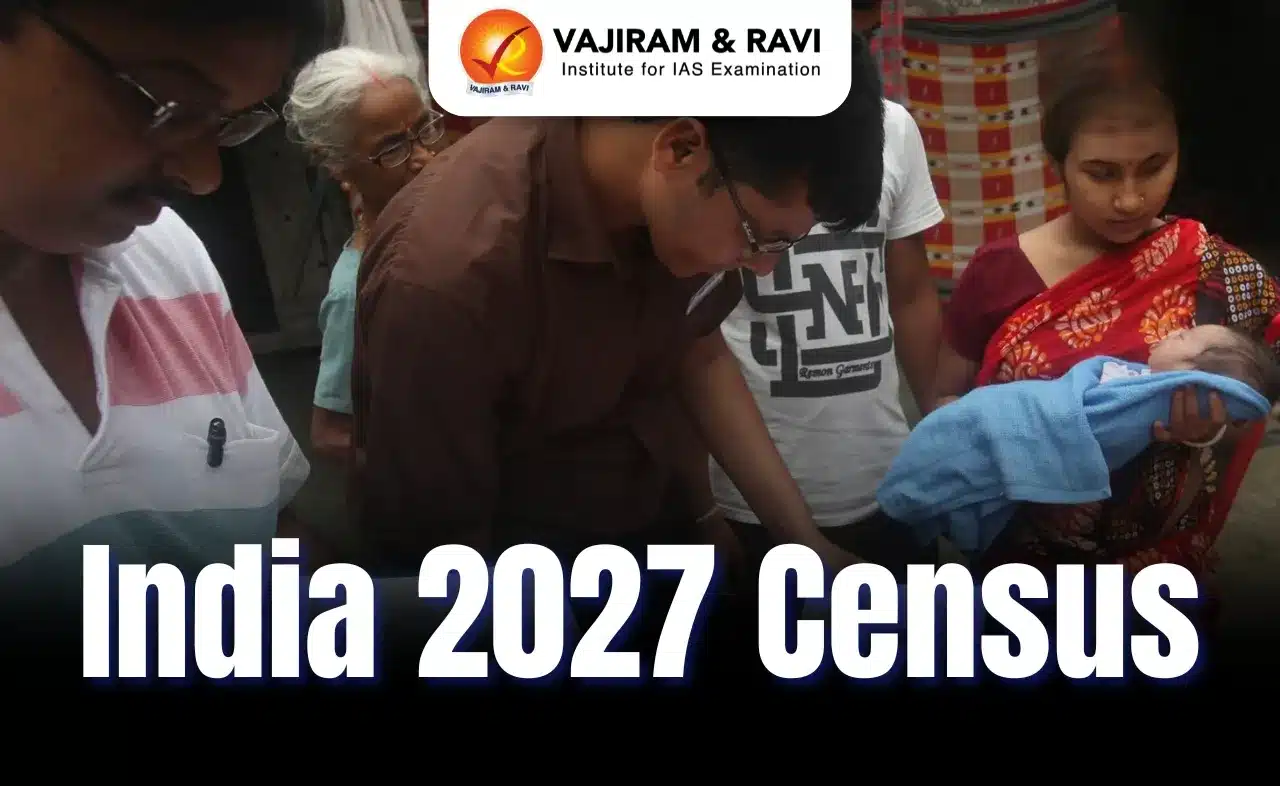What’s in today’s article?
- Why in news?
- What is All India Presiding Officers’ Conference?
- News Summary: 83rd All India Presiding Officers’ Conference
- What are the key highlights of the resolution passed at 83rd All India Presiding Officers’ Conference?
Why in news?
- The 83rd All India Presiding Officers’ Conference was organised in Jaipur. It concluded with a resolution passed by the attending members.
What is All India Presiding Officers’ Conference?
- The All India Presiding Officers’ Conference (AIPOC) is the apex body of the Legislatures in India that completed its hundred years in 2021.
- The first Conference was also held in Shimla in 1921.
- The 83rd All India Presiding Officers’ Conference was held in Jaipur.
- The 83rd session focused on following themes of contemporary relevance:
- Leadership of India in G-20 as the mother of democracy;
- The need to make Parliament and Legislature more Effective, Accountable and Productive;
- Integration of State Legislatures with Digital Parliament;
- The need to maintain a harmonious relationship between the Legislature and the Judiciary in accordance with the spirit of the Constitution.
News Summary: 83rd All India Presiding Officers’ Conference
- A resolution was passed at the conclusion of the 83rd All India Presiding Officers’ Conference which virtually endorsed Vice President Jagdeep Dhankar’s remarks on judicial overreach.
- While inaugurating the conference, VP Dhankhar said Parliament’s sovereignty and autonomy cannot be permitted to be qualified or compromised as it is quintessential to survival of democracy.
What are the key highlights of the resolution passed at 83rd All India Presiding Officers’ Conference?
- Emphasised on separation of powers
- The resolution recognised the separate powers of the judiciary and legislature.
- It said that each should respect the boundaries provided by the Constitution.
- While reposing confidence in the principle of separation of powers, it exhorted all organs of the state to respect the Constitutional boundaries enshrined in the Constitution of India.
- Highlighted primacy of the people of India in law-making
- The resolution reaffirmed its complete faith in the primacy of the people of India in law-making through the legislative bodies of the nation.
- Sought a code of conduct to rule the behaviour of legislators in Assemblies, Councils and Parliament
- The resolution passed by the conference also sought a code of conduct to rule the behaviour of legislators in Assemblies, Councils and Parliament.
- The resolution said that a Code of Conduct for Members should be introduced in the Rules to bring about an effective check against indecorous and unparliamentary conduct.
- Need to review Rules of Procedure and Conduct of Business of legislative bodies
- The conference resolved that Rules of Procedure and Conduct of Business of legislative bodies must be reviewed comprehensively.
- It further said that model uniform Rules be formulated incorporating best practices in order to secure greater participation of Members and more productive functioning of the Houses of legislature.
- Urged the political parties to build a consensus against disruptions
- The resolution also asked political parties to build a consensus among themselves against any disruption in the Houses of legislature, particularly during Question Hour.
- Decorum and discipline were extremely necessary within the House and it was not proper to pass Bills amidst disruption.
- Other highlights of the resolution
- The resolution extended full support to the projection of India as the “Mother of Democracy” during the country’s ongoing G-20 presidency.
- It also empowered the committee system to ensure scrutiny of the executive.
- It also confirmed that all legislatures would work towards joining the National Digital Grid for Legislative Bodies.
Q1) Where was the first All India Presiding Officers’ Conference (AIPOC) held?
The All India Presiding Officers’ Conference (AIPOC) is the apex body of the Legislatures in India that completed its hundred years in 2021. The first Conference was also held in Shimla in 1921.
Q2) What does Parliament sovereignty mean?
Parliamentary sovereignty means that parliament is superior to the executive and judicial branches of government. It can, therefore, enact or repeal any law it chooses.
Source: Judiciary, legislature should respect Constitutional boundaries: presiding officers | PIB | PIB | Hindustan Times
Last updated on June, 2025
→ UPSC Notification 2025 was released on 22nd January 2025.
→ UPSC Prelims Result 2025 is out now for the CSE held on 25 May 2025.
→ UPSC Prelims Question Paper 2025 and Unofficial Prelims Answer Key 2025 are available now.
→ UPSC Calendar 2026 is released on 15th May, 2025.
→ The UPSC Vacancy 2025 were released 1129, out of which 979 were for UPSC CSE and remaining 150 are for UPSC IFoS.
→ UPSC Mains 2025 will be conducted on 22nd August 2025.
→ UPSC Prelims 2026 will be conducted on 24th May, 2026 & UPSC Mains 2026 will be conducted on 21st August 2026.
→ The UPSC Selection Process is of 3 stages-Prelims, Mains and Interview.
→ UPSC Result 2024 is released with latest UPSC Marksheet 2024. Check Now!
→ UPSC Toppers List 2024 is released now. Shakti Dubey is UPSC AIR 1 2024 Topper.
→ Also check Best IAS Coaching in Delhi
























